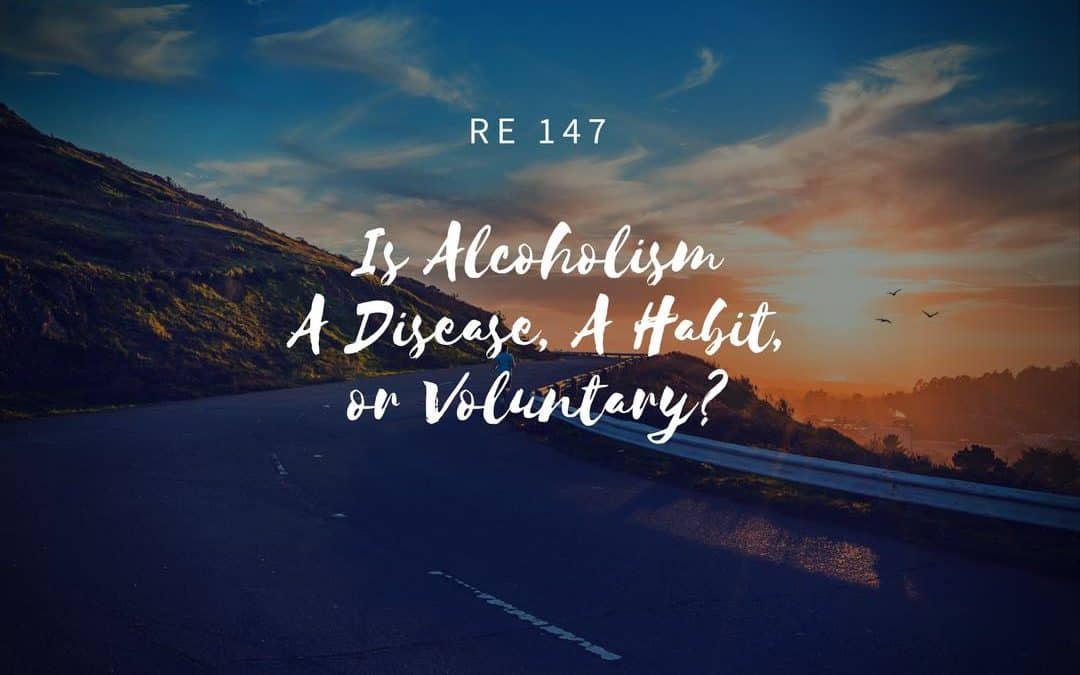Podcast: Play in new window | Download
Subscribe to the Recovery Elevator Podcast Apple Podcasts | RSS | More
The 3 basic camps of addiction can be broken into the following categories:
- The prevailing wisdom today is that addiction is a disease. This is the main line of the medical model of mental disorders with which the National Institute on Drug Abuse (NIDA) is aligned: addiction is a chronic and relapsing brain disease in which alcohol use becomes involuntary despite its negative consequences.
The idea here is, roughly, that addiction is a disease because alcohol use changes the brain and, as a result of these changes, alcohol use becomes compulsive, beyond the voluntary control of the user. In other words, drinker has no choice and his behavior is resistant to long term change.
- Marc Lewis’ “The Biology of Desire: Why Addiction is Not a Disease”, has stirred controversy among addicts, their families, addiction researchers, and treatment providers. Lewis claims that the scientific facts don’t support the disease model of addiction. Rather, addiction, like romantic love and other emotionally loaded habits, develops through accelerated learning. Combining scientific views with intimate biographies of addicts who recovered, the book also shows how addiction can be overcome, through self-directed change in one’s goals and perspectives.
- Drawing on psychiatric epidemiology, addicts’ autobiographies, treatment studies, and advances in behavioral economics, Heyman makes a powerful case that addiction is voluntary. He shows that drug use, like all choices, is influenced by preferences and goals. But just as there are successful dieters, there are successful ex-addicts. In fact, addiction is the psychiatric disorder with the highest rate of recovery. But what ends an addiction?
At the heart of Heyman’s analysis is a startling view of choice and motivation that applies to all choices, not just the choice to use drugs. The conditions that promote quitting a drug addiction include new information, cultural values, and, of course, the costs and benefits of further drug use. Most of us avoid becoming drug dependent, not because we are especially rational, but because we loathe the idea of being an addict.
Greg, with 361 days since his last drink, shares his story
SHOW NOTES
[13:45] Paul Introduces Greg. I’m 54 years old, I live In Las Vegas, I’m an attorney, and working in HR currently. I have been married for 26 years, and have 2 daughters aged 22 and 18. I love being outdoors.
[18:59] Paul- Can you describe your rock bottom moment?
Greg- The summer of 2016 I played on a work Softball League. We won the championship. I had a party at my house to celebrate. I drank way too much, I blacked out, we ended up doing shots of tequila. It was a bad scene. The next morning it was the lowest I had felt in my life. It was ruining my relationships.
[26:43] Paul- When you came out, how liberating was that feeling?
Greg- It was awesome. I felt like I had taken a huge first step. I admitted to myself I had a problem. It was liberating. I have expanded my accountability network.
[37:01] Paul- You look at it like an opportunity and not a sacrifice. Comment more on that
Greg- It is really a celebration. There were times in the past when I tried to give up drinking. With that mentality it didn’t work. I have gained peace and happiness, and joy and serenity. I really look at recovery as something that I have been given. I am going to make the most of it every single day.
[41:18] Rapid Fire Round
- What was your worst memory from drinking? It was definitely waking up the morning after the softball party. That was the low point from there, I started heading back up.
- Did you ever have an “oh-shit” moment? There was a time a few years ago when one of my kids had an event during one of my drinking nights. I thought it is kind of twisted thinking for getting upset I was going to have to spend time with my family because it would interfere with my drinking.
- What’s your plan moving forward? Doing this podcast has been great. One day at a time. I’m going to continue to go to Celebrate Recovery.
- What’s the best advice you’ve ever received (on sobriety)? Focus on the similarities, not the differences.
- What parting piece of guidance can you give listeners who are in recovery or thinking about quitting drinking? If you think you might have a problem, reach out to one other person you trust.
- You might be an alcoholic if…you are nick named after a drink.
Resources mentioned in this episode:
“Beyond the Influence” – Katherine Ketcham
Gene Heyman “Addiction: A Disorder of Choice”
Marc Lewis “Biology Of Desire”
Article: “Is Addiction a Disease?”
Connect with Cafe RE– Use the promo code Opportunity to waive the set up fee.
Sober Selfies! – Send your Sober Selfie and your Success Story to info@recoveryelevator.com
“We took the elevator down, we gotta take the stairs back up, we can do this!”



